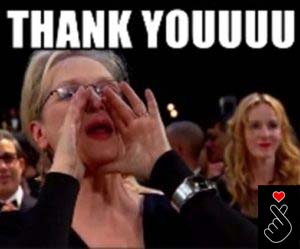We all know that the interview process is not an easy one for most people, either for employers or employees. Before recruiting an employee, there are some considerations, and these result from an interview. Even though many candidates feel confident they have answered questions well, the results can say otherwise.
Well, it may happen to candidates who receive tricky questions, so that they answer incorrectly, leading them not to be accepted for work. If you are preparing for a job interview, it is highly recommended for you to learn what you have to answer when receiving tricky questions.
Thankfully, this post will show you seven tips for answering tricky questions during job interviews. Okay, let’s dive into our post to find the tips and tricks!

What Should You Prepare for a Job Interview?
There are some things you should do before a job interview. Of course, preparation is very important for you, since it will help you get out of job interview traps. According to some internet sources, there are three things you need to do before a job interview. Here are they:
1) Learn more about the company
In the book entitled101 Great Answers to the Toughest Interview Questions, authored by Fry, one of the keys to the interview process is preparation. It’ll be better for candidates to figure out the ins and outs of the company and industry they apply for, as well as the position they want to occupy.
Aside from that, the candidates should also prepare the appropriate answers to answer the interviewer and train themselves with knowledge that will attract the HRD to hire them. During the interview, the candidates may possibly be tested for their insights and failure to overcome those challenges, making the candidates incompetent in the interviewer’s sight.
2) Make sure to come on time and well-dressed
One of the factors in cancelling the interview was the late arrival of applicants. Of course, the HRD does not care what happened on your trip that caused you to be late, and you may be rejected for the interview. In this situation, you should be able to anticipate such unpredictable occurrences by coming early.
In addition to the knowledge of the applicants, the suits are also considered to determine whether you are hired or not. Being well-dressed for an interview does not mean that you should wear expensive suits every time you go for an interview.
That means you need to consider your appearance, which is in accordance with these conditions: well-dressed, polite, fragrant, and not using excessive accessories.
3) Don’t try to lie by providing fake information
According to Fry, if you try to lie about anything, particularly regarding where and when you have worked or studied before, the HRD may likely find out. Regardless of whether it is easy or hard, every job will require certain standards that employers have to observe. Of course, they will take the time to find out your education or previous company, so the gap to lie is slightly small.
7 Examples of Trap Questions in a Job Interview and Tips for Answering Them
According to kampuspsikologi.com, there are seven examples of trap questions that HR will ask you in a job interview. If you receive the ‘trap’ questions in a job interview, make sure to follow the tips for answering them that we will show below. Here are they:
1) “Can you tell us a little bit about yourself?”
This question often comes up during a job interview and is definitely very tricky. In this case, you are not actually asked to explain the nature of yourself or things that are not relevant to the related job position. For example, if you apply for an account, you shouldn’t mention your hobby of cooking or traveling as well.
Instead, you have to explain your qualities related to the position being addressed. You can tell how you have benefited a previous company by what achievements you have obtained, so that HRD may be able to see the uniqueness in you that benefits the company.
2) “What are your weaknesses?”
If you get this second trap question, you shouldn’t tell your strengths and weaknesses in a way that will end up hurting you. Make sure to avoid answering the question with “I can’t work in a team,” or “I’m always late for an activity,” but you shouldn’t also respond with the statement “I don’t have any weaknesses.”
The best answer to this kind of question is that you try to show that you are fully aware of your weaknesses and what the challenges are for you, while at the same time stating that self-improvement is a consistent process.
If you have a weakness in public speaking, you can try to say that you are undergoing training in a community that then makes you accustomed to communicating with others gradually.
3) “How do you see yourself in the next few years?”
This kind of question aims to see whether or not you have the same vision and mission as the company. This question is commonly intended to review whether you have set realistic goals to pursue your career in the industry.
To answer this question, you can convince HRD that you can try to achieve a certain point where your potential is maximized for your company. In fact, most companies will be attracted to those with the greatest ambition to improve their skills and experience.
4) “What do you know about this company?”
As we’ve mentioned, you need to learn deeply about the company you apply to. In this case, you’re not only advised to know the organizational structure or location of the company from where they live, but you will also be encouraged to find out what projects are being carried out by the company, the strategy of the company, vision and mission, as well as organizational culture, through various available media, such as the official website of the company, newspaper, etc.
5) “Why is there a history of unemployment in your work track record?”
The history of unemployment for people who have previously worked is often considered negative, even in difficult economic times. To answer this kind of question, you can state the problems you face clearly and honestly.
According to careersidekick.com, you can try to tell them what to do during your time off, particularly things that are self-improvement, such as doing volunteer work, taking training classes, earning certificates, and also writing articles. You can also try to explain how those activities will benefit the available position.
6) “What’s your salary requirement?”
In every job interview, this kind of question can be the most important and the most confusing at once. To avoid the bad possibilities that can occur because of errors in negotiating, you can try to figure out an overview of how much salary workers in related positions get on certain sites.
If you have great skills, experience, and also an education track record that is considered valuable to the company, you may be able to negotiate it with the interviewer through consideration, which is beneficial to both parties.
7) “What can you offer the company that other candidates can’t?”
Sharon Florentine, author of Insider Pro Website, warns us to be careful when answering this kind of question since some HRDs may provoke you to brag too much. Instead of using this question as a platform for baseless humiliation of others, this is also a chance for you to explain the company’s advantages of hiring them later.
To answer this question, you can try to explain how your skills that are gained from previous experience will complement the needs related to the position being offered.
Conclusions
Occupying a position offered by a company is what most people desire. In reality, there are a variety of challenges that can complicate the process. One of them is the interview session. If you prepare yourself by honing your skills and experience, so that the HRD will see the value of someone’s usefulness, it’s not enough to attract the HRD’s attention.
Moreover, other aspects that will be assessed in a job interview are the ability to adhere to principles, know one’s weaknesses and improve them, and also have long-term goals that are in line with the company’s mission and vision.
So, one way to achieve it is to prepare it well, so that the final results after the interview process are in accordance with your initial expectations.

A bookworm and researcher especially related to law and citizenship education. I spend time every day in front of the internet and the campus library.





